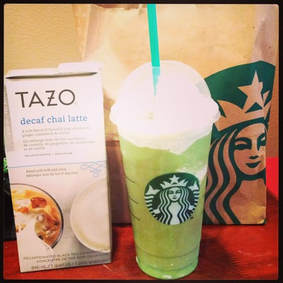
6165 Barfield Road
Atlanta GA, 30328
United States
Tel: +1 (770)688-1206
Fax: +1 (770)688-1229

According to Customs and Border Protection Ruling number HQ H254133, payment of duties for tea bags and tea packaging are to be considered separate. Starbucks sells Tazo Tea in retail packaging at grocery stores and in their stores. As sold in the United States, Tazo Tea consists of tea that is flavored with various ingredients and then packaged in single serve tea bags for retail sale. Starbucks imports bulk tea bags into the United States, then exports it to a foreign country where it is then packaged. As a result, the duties are considered to be separate!
The CBP states rulings previously issued on the separate classification of packaging for clarification in the letter.
"Moreover, CBP has consistently issued rulings concerning the separate classification of wrappers, outer containers, and inside containers for retail packaged tea that is less than 2.3 kg net. In HQ 957210, dated March 6, 1995, we issued a ruling on flavored tea that was packaged in foil packages inside cardboard boxes, wherein we directed the importer to classify the packaging components separately. On November 22, 1993, in New York Ruling Letter (NY) 892095, CBP issued a ruling on black tea that was imported in paper tea bags, with each tea bag enclosed in a paper sack. The tea bags were packaged in a cellophane-wrapped paper box in sizes of 10 or 24 tea bags per box. The importer was advised that “all immediate containers and wrappings, and all intermediate containers, of tea in packages less than 2.3 kilograms, net, each are dutiable at the rates applicable to such containers and wrappings if imported empty.” On November 28, 2006, we issued NY N004087 to Starbucks on merchandise substantially similar to the instant merchandise. See also NY 851505, dated April 27, 1990, NY E81943, dated June 4, 1999, and N258048, dated March 27, 2014."
(Article no longer available).

A multinational organization based in Bangkok, Thailand, has agreed to pay $20,000,000 to settle potential civil liability for 467 apparent violations of OFAC sanctions on Iran. Between 2017 and 2018, the company facilitated $291 million in wire transfers through U.S. financial institutions for the sale of Iranian-origin high-density polyethylene resin (HDPE), manufactured by a joint venture involving the parent company in Iran. HDPE is a robust resin used in various plastic products such as food and beverage containers, shampoo bottles, and industrial items. Concurrently, the company initiated U.S. dollar wire transfer transactions to settle the joint venture’s debts to third-party vendors.

BIS has released the newest iteration of their guidance on export enforcement. The “Don’t Let This Happen to You” guidance document is dated March 2024 and is 76 pages of important guidance for the export community. The opening letter states “Export controls have never been more important to our collective security interests than they are today.” Follow the link below to check out more details!

The U.S. Customs and Border Protection (CBP) has issued a Withhold Release Order (WRO) against work gloves manufactured in a Chinese company and its subsidiaries, based on evidence suggesting the use of convict labor. This action is part of the U.S. government's efforts to combat forced labor globally. With nearly 28 million workers suffering under such conditions worldwide, WROs are a means to deter companies from exploiting labor and to protect vulnerable populations. By enforcing laws prohibiting the importation of goods produced by forced labor, CBP aims to safeguard American workers, businesses, and consumers. Currently overseeing and enforcing numerous WROs and Findings, CBP emphasizes its commitment to eliminating forced labor from U.S. supply chains and encourages reporting of suspected violations.
Our Sites use cookies for analytics purposes. For more information about the cookies we use on our Sites or how you can disable them, please see our Cookie Policy.